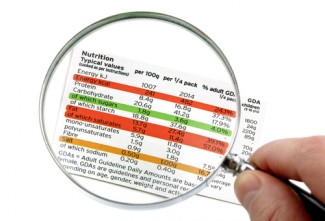Food labeling lawyer's 'warehouse of complaints' are 'not fit for public consumption,' judge says

Image from Shutterstock.
A federal judge in Illinois who has a knack for criticizing lawyers with biting prose has turned his attention to a lawyer who battles food companies over their labeling.
In a May 15 opinion, U.S. District Judge Steven C. Seeger of the Northern District of Illinois tossed a lawsuit filed by lawyer Spencer Sheehan contending that the labeling for Walmart’s Great Value mayonnaise “with olive oil” created a false impression that the product contained higher amounts of the ingredient relative to other oils. Consumers expect “a significant, non-de minimis amount of olive oil,” the suit said.
“The shelf life of the complaint has long since expired,” Seeger wrote. “In fact, the theory of the case was past its prime from the very moment that it arrived in the federal courthouse. Plaintiff’s counsel has peddled this theory time and again, in case after case, without much success in this district. The complaint joins a warehouse of complaints filed by plaintiff’s counsel that are not fit for public consumption.”
Seeger ordered Sheehan to show cause why he shouldn’t have to pay attorney fees incurred by Walmart Inc., the defendant in the case.
Seeger also ordered Sheehan to file a spreadsheet identifying every case that he has filed since 2020 claiming that consumers expected more than a de minimis amount of an ingredient in products. The spreadsheet must show the outcome of any motion to dismiss.
Law360 has coverage of Seeger’s opinion and Sheehan’s response, which argued that his cases have always been supported by law or nonfrivolous arguments. Sheehan pointed out that no sanctions have ever been imposed against him in the hundreds of cases that he has filed.
“Numerous other courts” in cases brought by Sheehan have concluded that it is plausibly misleading to falsely imply that a food contains more of a valued ingredient than it did, Sheehan argued.
Seeger had dismissed two other cases filed by Sheehan alleging that consumers were misled because they expected a product to contain more than a de minimis amount of an ingredient on the label.
“Plaintiff’s counsel has developed a fair bit of notoriety for filing cases about consumer labeling,” Seeger wrote. “Many of the complaints have suffered the judicial equivalent of a crash landing or perhaps an explosion on the launch pad. They haven’t survived for long.”
“At this point, this court has gone round and round the carousel a number of times with plaintiff’s counsel in cases about deceptive product labeling,” Seeger said at another point in the opinion. “The case at hand is yet another spin on an increasingly unpleasant ride. It is time for the carousel to come to a halt.”
Seeger said Sheehan had become “a wrecking ball when it comes to imposing attorneys’ fees on other people.” He said Sheehan “has taken everyone on a ride,” and he “must show who should pay for the ticket.”
In other cases, Seeger has declared that “judge shopping ain’t a thing here,” complained that a lawyer’s motion was littered with “unnecessary potshots and hyperbole,” and slammed an emergency motion to halt the sale of knockoff unicorn art during the COVID-19 pandemic.
In his May 27 response to the order to show cause, Sheehan said other judges didn’t have the same reaction to his suits.
“At some point in its series of orders, the court should have asked itself, why, over hundreds of cases filed by plaintiff’s counsel, over numerous years, against the world’s biggest food companies, represented by the biggest law firms, no sanctions have ever been imposed,” Sheehan wrote.
Sheehan didn’t immediately respond to the ABA Journal’s request for comment by voicemail and email.
The case is Guzman v. Walmart Inc.



